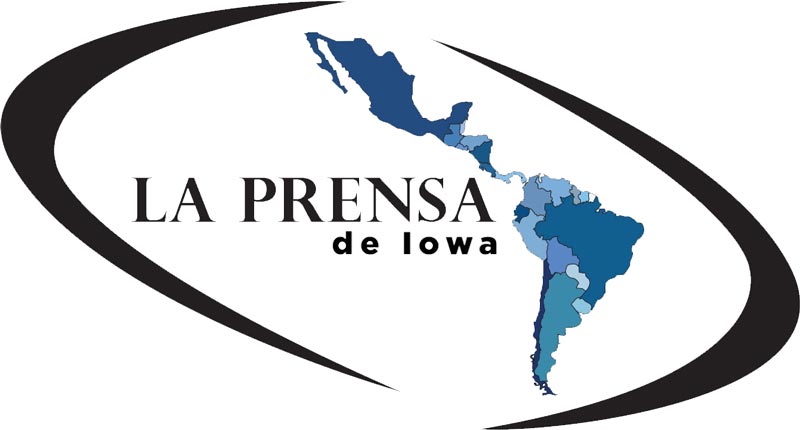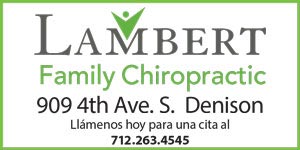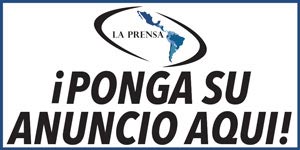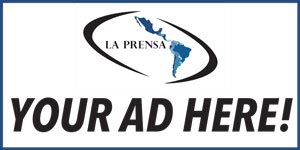Northwestern College ofrece certificación para interpretes médicos
/⇣ English translation provided at the end ⇣
Ashley Martínez Torres
Especial LA PRENSA
Northwestern College está ofreciendo un programa de certificación para interpretes médicos a finales de agosto de este año. Las personas que se inscriban al programa automáticamente recibirán una beca de $2,100.
Unos de los requisitos para los aplicantes es que sean completamente bilingües en los idiomas de español e inglés, presenten diploma de escuela secundaria y mayores de 18 años.
“La mayoría de las veces por las que las personas que se unen a este programa mas no pueden entrar o terminan saliéndose es porque no son completamente fluyentes en ambos idiomas o porque no cuentan con la certificación de escuela secundaria,” explicó Piet Koene, director del programa en Northwestern College, profesor de español e interprete médico certificado estatal y federalmente.
La escuela ha ofrecido una carrera para interprete y traductor general durante los últimos 12 años, mas hace dos años la escuela decidió implementar dos programas de interpretación enfocados en terminología médica y legal. Estos programas son ofrecidos de forma intermitente cada año escolar.
“Hay que aclarar que a pesar de que ofrecemos este programa de certificación, esto no significa que los estudiantes obtienen la certificación para ser interpretes al momento de terminar el programa,” aclaró Piet. “Se tiene que tomar y pasar el examen de certificación para que esto sea oficial. Es similar a lo que los estudiantes de enfermería o contabilidad hacen para poder ejercer su carrera.”
Una vez que los estudiantes terminen este programa, estos estarán a cargo de tomar el examen de certificación, ya sea por parte de la Junta Nacional de Interpretes Médicos Certificados (NBCMI por sus siglas en inglés) o la Comisión de Interpretes Médicos Certificados (CCHI por sus siglas en inglés). El costo de la aplicación y examen es alrededor de $500.
Piet también agregó que hay una gran diferencia entre personas bilingües e intérpretes médicos; debido a que la tasa de aprobación para el certificado médico es del 40 por ciento, “las expectativas son bastantes altas para obtener tu certificado, es por eso que los hospitales requieren a personal certificado, porque saben que la persona está capacitada para este trabajo,” dijo. Además, el contratar a un interprete certificado disminuye el riego de problemas o errores que podrían causar demandas a la institución.
“La necesidad de intérpretes está incrementando tan rápido que es increíble,” comentó Piet. “Recibo varios correos electrónicos al mes preguntándome si conozco a algún interprete médico que estaría interesado en trabajar para hospitales o clínicas.”
Según la Oficina de Estadísticas Laborales de los Estados Unidos (U.S Bureau of Labor Statistics por su nombre en inglés), se estima que el empleo de intérpretes y traductores incrementará un 24% entre 2020 al 2030 a través del país. Cada año, al menos 10,400 ofertas de empleo están disponible cada año, en promedio, a lo largo de una década. Esto se debe como resultado de la necesidad de reemplazar aquellos empleados que se transfieren a diferentes puestos o se retiran de la fuerza laboral.
Este programa es ofrecido completamente virtual y asincrónica, lo que significa que los estudiantes pueden trabajar en sus tareas durante sus propios horarios cada semana. Se espera que los estudiantes inviertan al menos 15 horas semanales dedicadas a sus estudios, y además se les ofrecerá una sesión de practica cada lunes de 5 p.m. a 7 p.m. para que puedan practicar su vocabulario con otros estudiantes y puedan recibir comentarios sobre sus avances en el programa.
“Las habilidades de interpretación funcionan en cualquier área,” agregó Piet. “Una vez que aprendes a traducir e interpretar de forma consecutiva y simultánea, esto se puede usar en áreas legales, religiosas o de negocios, solo tienes que aprender la terminología de esa área.”
Este artículo es patrocinado gracias a Western Iowa Journalism Foundation.
Translation
Northwestern College will offer certification for medical interpreters this fall
Ashley Martínez Torres
Special for LA PRENSA
Northwestern College is offering a certification program for medical interpreters in late August of this year. Students who enroll in the program will automatically receive a $2,100 scholarship.
Applicants are required to be fully bilingual in both Spanish and English, provide a high school diploma and be over 18-years-old to be part of the program.
“The two most common reasons why students drop of the program are because they are either not fully bilingual or because they don’t have their high school diploma,” explained Piet Koene, Northwestern College program director, Spanish professor and State and Federal certified court and medical interpreter.
The school has offered a major in general interpreting and translation for the past 12 years, but two years ago it decided to implement two interpreting programs focused on medical and legal terminology. These programs are offered one each school year.
“We offer a certification for medical or legal interpreters, however, that an individual completes our program doesn’t mean that they are certified interpreters at that point,” he said. “They have to take a certification exam on their own time and pass it for it to be official. Just like a nursing or accounting student.”
Once students finish this program, they are responsible for the fees and costs of the exam as well as taking it on their own time; they can take it through the National Board of Certified Medical Interpreters (NBCMI) or the Commission on Certified Medical Interpreters (CCHI). The cost of the application and exam is around $500.
Koene also added that there is a big difference between bilingual people and medical interpreters; because the passing rate for the medical certificate is 40 percent, “the bar is quite high to become certified, that’s why hospitals require certified interpreters, because they know the individual is able to interpret.” In addition, hiring a certified interpreter decreases the risk of problems or errors that could cause lawsuits on the institution they work for.
“The need is growing so quickly is incredible,” Koene added. “I receive several emails per month asking me if I have any certified interpreter students that would be interested in becoming a staff interpreter at hospitals and clinics.”
According to the U.S. Bureau of Labor Statistics, it is estimated that the employment of interpreters and translators will increase by 24% between 2020 and 2030 across the country. Each year, at least 10,400 job openings are available each year, on average, over the course of a decade. This is due to the need to replace those employees who transfer to different positions or retire from the workforce.
This program is offered completely virtual and asynchronous, which means students can work on their assignments during their own schedules each week. Students are expected to invest at least 15 hours per week dedicated to their studies and will also be offered a practice session every Monday from 5 p.m. to 7 p.m. so that they can practice their vocabulary with other students and receive feedback on their progress in the program.
“Interpreting skills work across any field, so once they know consecutive and simultaneous interpreting and translation that is applicable to other areas like legal or religious interpreting, all they’d have to do is learn the terminology for it.”
This article is sponsored by the Western Iowa Journalism Foundation.






































